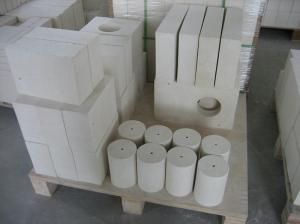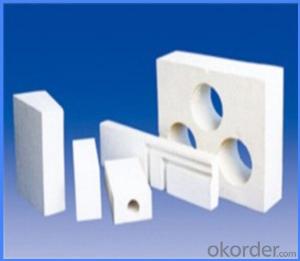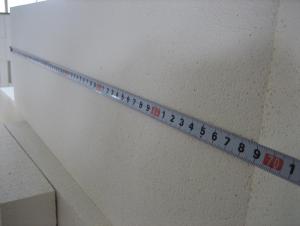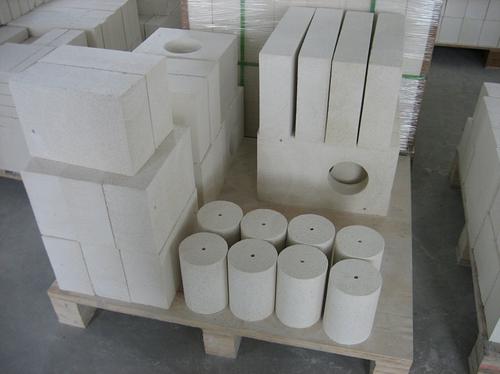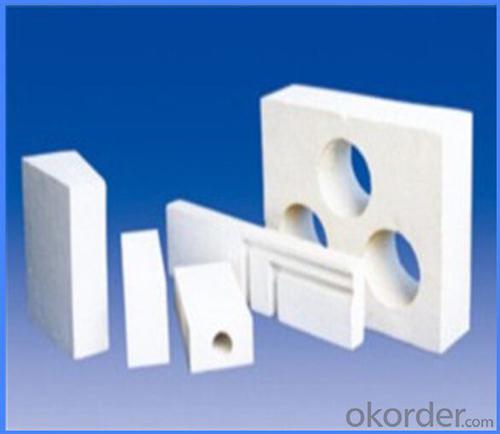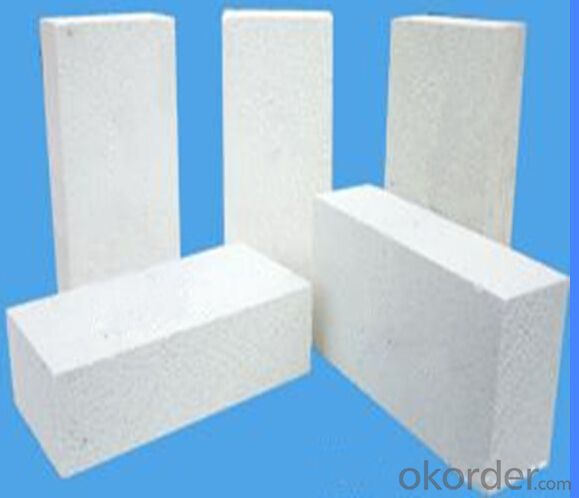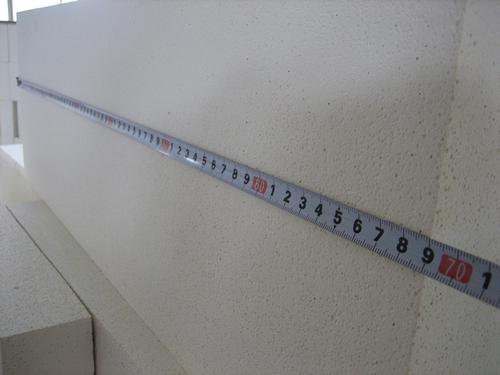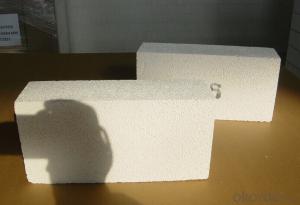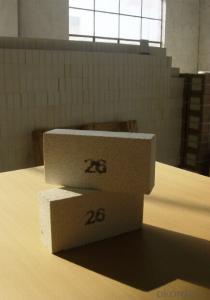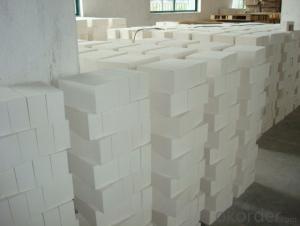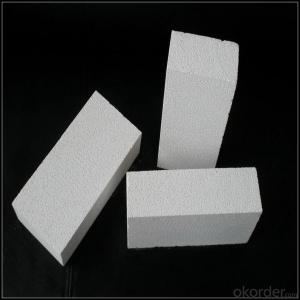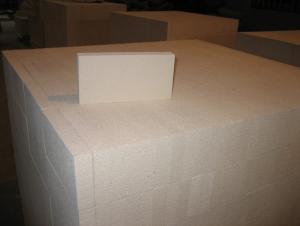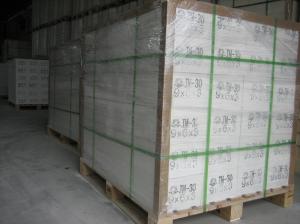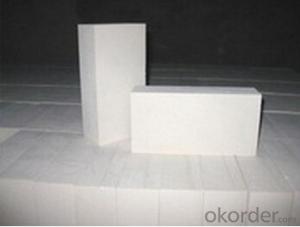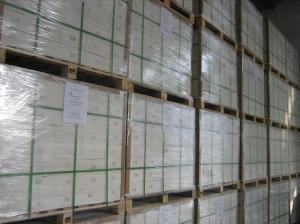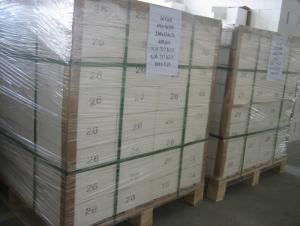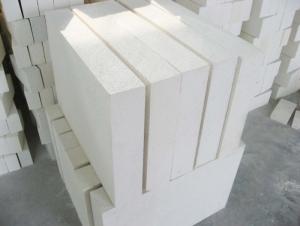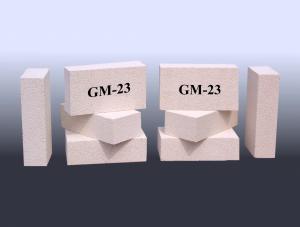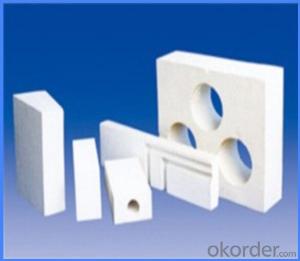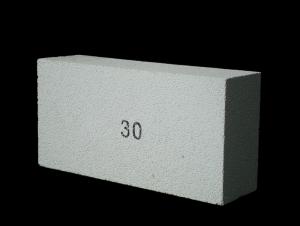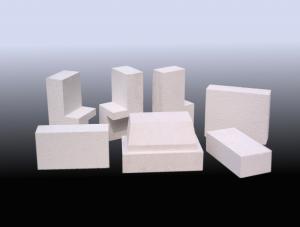Insulating Fire Brick - Refractory Mullite Insulating Refractory Brick JM 35
- Loading Port:
- Shanghai
- Payment Terms:
- TT OR LC
- Min Order Qty:
- 20 m.t.
- Supply Capability:
- 20 m.t./month
OKorder Service Pledge
OKorder Financial Service
You Might Also Like
Okorder series heat insulation brick
Okorder series thermal insulation brick is an effective, energy saving, low carbon, environmental protection advanced, according to the ASTM standard manufacturing products. Okorder series products have all kinds of materials in the field of metallurgy, industrial furnaces, aluminum, the best Li Ning petrochemical and insulation, electric power and glass ceramics. They can be used as part of an insulation or not to melt. Products have been widely used in the following furnace, achieved satisfactory results.
Application of heat preservation brick
Metallurgical Industry: blast furnace, hot blast furnace, heating furnace, etc..
Petrochemical Industry: ethylene cracking furnace, hydrogen furnace, the main furnace, heating furnace, etc..
Ceramic industry: roller kiln, kiln, etc..
Glass industry: glass furnace regenerator, etc.
Carbon industry: carbon furnace, etc..
Aluminum electrolysis industry: aluminum reduction cell, etc.
Other industries: tunnel kiln, shuttle kiln, etc..
Advantages of heat insulation brick
Low thermal conductivity: many air holes will bring good thermal insulation effect, energy saving.
High crushing strength: high crushing strength, volume stability.
Low heat storage: small heat storage, absorb more heat, energy-saving effect is obvious.
Chundu: High-speed Rail, low content of alkali metal impurities.
Accuracy: the size of the brick machining precision, cutting and grinding the special shape, speed up the brick.
Technical Data
ITEM | GJM30 | GJM28 | GJM26 | GJM23 |
Classification Temperature, ℉/℃ | 3000/1650 | 2800/1540 | 2600/1430 | 2300/1260 |
Bulk Density,g/cm³ | ≤1.0 | ≤0.9 | ≤0.8 | ≥0.5 |
Reheating Linear Change, % | ≤0.9 (1550℃,12 h) | ≤0.8 (1510℃,12 h) | ≤0.7 (1410℃,12 h) | ≤0.5 (1230℃,12 h) |
Al2O3 Content, % | ≥75 | ≥65 | ≥55 | ≥45 |
Fe2O3 Content, % | ≤0.5 | ≤0.6 | ≤0.7 | ≤1.0 |
Thermal Conductivity: | ||||
800℃, w/m.k | ≤0.39 | ≤0.37 | ≤0.35 | ≤0.18 |
1000℃, w/m.k | ≤0.43 | ≤0.41 | ≤0.39 | ≤0.20 |
1200℃, w/m.k | ≤0.48 | ≤0.46 | ≤0.43 | --- |
Insulating brick
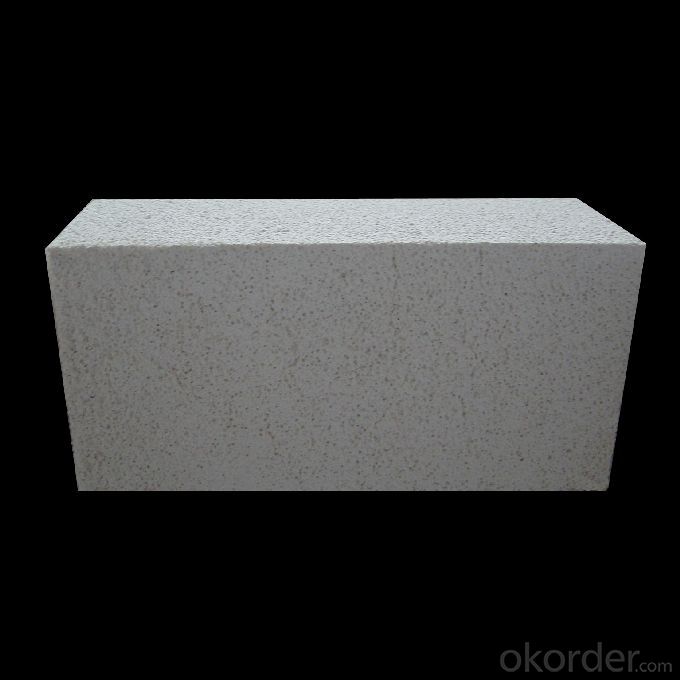
- Q: Can insulating fire bricks be used in chimneys or flue systems?
- Yes, insulating fire bricks can be used in chimneys or flue systems. Insulating fire bricks are designed to withstand high temperatures and provide excellent thermal insulation. Their ability to resist heat makes them suitable for lining chimneys and flue systems, helping to reduce heat loss and improve overall efficiency.
- Q: Are insulating fire bricks resistant to thermal fatigue?
- Insulating fire bricks are indeed resistant to thermal fatigue. These bricks are specifically designed to withstand high temperatures and thermal cycling without cracking or breaking. They are made from refractory materials that have excellent thermal shock resistance, allowing them to expand and contract without any significant damage. This resistance to thermal fatigue makes insulating fire bricks ideal for applications that involve extreme temperature variations, such as in kilns, furnaces, and other high-temperature environments.
- Q: Do insulating fire bricks require special storage conditions?
- Yes, insulating fire bricks do require special storage conditions. They should be stored in a dry and well-ventilated area to prevent moisture absorption, which can lead to cracking or spalling during use. Additionally, they should be protected from extreme temperatures and direct sunlight, as these can affect their integrity and performance.
- Q: Can insulating fire bricks be used for insulation in hot water tanks?
- Yes, insulating fire bricks can be used for insulation in hot water tanks. Insulating fire bricks are designed to have excellent thermal insulation properties, making them an ideal choice for insulating hot water tanks. These bricks can effectively prevent heat loss from the hot water tank, helping to maintain the temperature of the water for longer periods of time. Additionally, insulating fire bricks are highly durable and can withstand high temperatures without cracking or breaking, making them a reliable choice for hot water tank insulation.
- Q: Coke burns in a closed house. Will anyone suffocate in it?
- Not suffocating in the short term, will suffocate for a long time.
- Q: Can insulating fire bricks be recycled?
- Certainly, it is possible to recycle insulating fire bricks. These bricks are commonly composed of clay, alumina, and silica, among other materials, that can be disassembled and repurposed. The recycling process entails crushing the bricks into smaller fragments, subsequently utilizing them as aggregate in diverse construction projects. By adopting this method, waste is diminished, and resources are conserved, rendering it an eco-friendly alternative to disposing of these bricks. Furthermore, certain companies provide dedicated recycling programs for insulating fire bricks, enabling both individuals and businesses to conveniently recycle them instead of resorting to landfills.
- Q: Do insulating fire bricks have a high fire resistance rating?
- Yes, insulating fire bricks have a high fire resistance rating. These bricks are specifically designed to withstand high temperatures and provide excellent insulation, making them ideal for applications where fire resistance is crucial. They can withstand temperatures as high as 3000°F (1650°C), making them highly reliable in various industrial and residential settings that require protection against extreme heat.
- Q: Are insulating fire bricks resistant to saltwater?
- Insulating fire bricks are typically not resistant to saltwater. Saltwater contains high levels of salt, which can cause corrosion and degradation of the material over time. It is recommended to use refractory materials that are specifically designed to withstand saltwater environments if you are looking for a solution that is resistant to corrosion.
- Q: Can insulating fire bricks be used in chimney construction?
- Indeed, insulating fire bricks have the capability to be utilized in the construction of chimneys. These bricks are specifically designed to possess a low thermal conductivity, which ultimately leads to their effectiveness in minimizing heat transfer. As a result, they prove themselves suitable for chimney construction as they aid in maintaining cooler chimney walls and preventing excessive heat from being transmitted to the surrounding structures. Moreover, apart from their lightweight nature, insulating fire bricks possess commendable insulation properties, thereby making their handling and installation in chimney construction a much simpler task. However, it is imperative to acknowledge that in order to comply with safety regulations and ensure proper chimney construction, it is crucial to utilize insulating fire bricks in conjunction with other fire-resistant materials.
- Q: Are insulating fire bricks resistant to carbon monoxide?
- Indeed, insulating fire bricks demonstrate a remarkable resistance to carbon monoxide. Tailored for enduring extreme temperatures, these bricks find common application in environments where they are likely to encounter both intense heat and corrosive agents, including carbon monoxide. The insulating nature of these bricks bestows upon them an exceptional ability to impede heat transfer, ensuring their structural integrity remains intact even in the presence of carbon monoxide and other combustible gases. This resistance to carbon monoxide renders insulating fire bricks a stellar choice for various settings like furnaces, kilns, and other high-temperature surroundings where the potential for carbon monoxide exposure looms.
Send your message to us
Insulating Fire Brick - Refractory Mullite Insulating Refractory Brick JM 35
- Loading Port:
- Shanghai
- Payment Terms:
- TT OR LC
- Min Order Qty:
- 20 m.t.
- Supply Capability:
- 20 m.t./month
OKorder Service Pledge
OKorder Financial Service
Similar products
Hot products
Hot Searches
Related keywords
